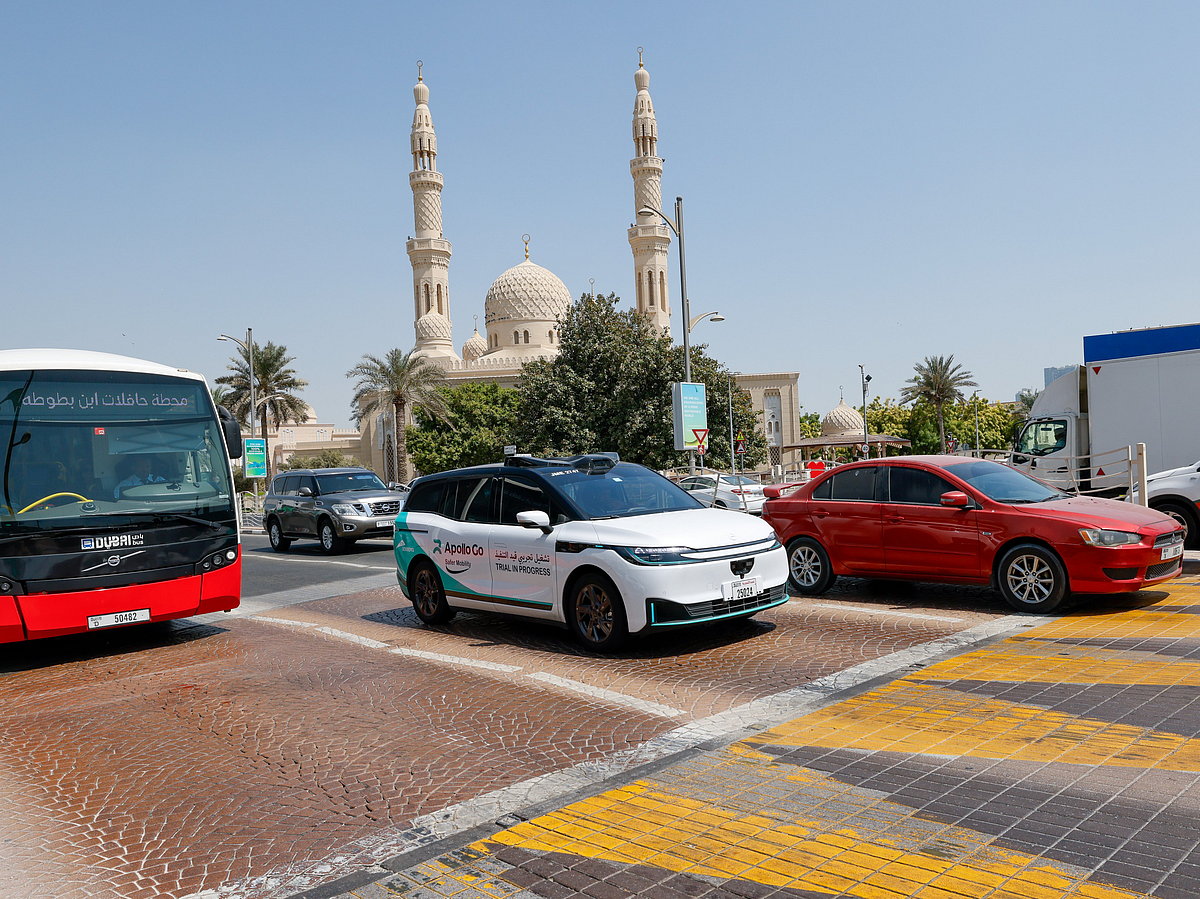How safe are driverless cars in Dubai? Baidu reveals trial results
We always put safety as top priority, says Baidu’s Liang Zhang

Robotaxis have quietly been hitting Dubai’s roads in recent months – and early results are promising, a top official said.
Chinese technology giant Baidu’s robotaxi arm, Apollo Go noted its self-driving RT6 cars have successfully completed hundreds of trial rides in areas including Jumeirah, Dubai Festival City and Zabeel, with zero safety incidents reported so far.
Giving select journalists a ride during the Dubai World Congress for Self-Driving Transport, Liang Zhang, Managing Director of EMEA at Baidu Apollo, said safety remains the company’s “top priority” as it prepares for commercial launch.
“We provided at least 40 trips to invited passengers from RTA, and it was 100 per cent success with zero intervention from the safety driver. So, it’s quite perfect,” Zhang revealed.
Watch the video below:
Rapid rollout in Dubai
Baidu began working with Dubai’s Roads and Transport Authority (RTA) in March. By April, its first batch of vehicles had arrived, and road trials started in May. Within four and a half months, 50 cars were deployed for testing.
By July, the company secured a milestone: Dubai’s first autonomous driving test licence plate (No. 001) and open-road permits from RTA. The company plans to expand the fleet to more than 1,000 fully driverless vehicles over the next three years.
Today, Baidu is authorised to operate in Zone 1 and Zone 2, including some of the city’s busiest districts.
“RTA defines testing zone from 1 to 4. Right now, we have the green light to do the testing in zone 1 and zone 2, including Jumeirah, Festival City and Zabeel area. It's a big range. The total area included in zone 1 and zone 2 is a little bit bigger than 400 square kilometres.”
Initially, Dubai Silicon Oasis acted as a regulatory “sandbox” where cars underwent initial validation before wider deployment. The company now hopes to “unlock” Zones 3 and 4, which represent the core of Dubai’s transport network.
Safety-first by design
Each Baidu Apollo robotaxi is equipped with several sensors, including four LiDAR sensors, 12 cameras and six radars. Apollo Go’s RT6 is described as the world’s first purpose-built, mass-produced Level 4 autonomous vehicle. It features a 10-layer safety redundancy system, spanning everything from computing and localisation to braking, power supply, and thermal management.
“We always put safety as the top priority. We have finished the validation and the testing to having this car to adapt to the GCC vehicle standards. We designed three different domains to have full redundancy system and ensure safety first,” Zhang said.
“This car has already finished testing under extreme conditions in China, from very high to very low temperatures. So, operating in Dubai’s heat is not a challenge.”
Tailored for Dubai roads
While the vehicles’ hardware remains identical to their Chinese counterparts, Baidu has fine-tuned its algorithms for Dubai’s unique driving culture. Roundabouts, for example, follow very different rules compared to China, requiring the AI to be retrained on local data.
“We have to update the algorithm and model to adapt to Dubai’s traffic laws and scenarios. That’s the only modification we make,” Zhang said.
Commercial launch in 2026
Baidu Apollo plans to go fully driverless in Dubai by Q1 2026, making the city its first global market outside China.
“On-demand transportation demand is extremely high in Dubai, both for regular taxis and ride-hailing services. That is a very strong foundation for us to provide robotaxi ride-hailing services here.”
At the Congress, RTA reinforced its ambition to transform Dubai into a self-driving transport powerhouse, with autonomous taxis, delivery bots, and marine vessels forming part of the city’s mobility mix by 2030. RTA also unveiled its new autonomous transport zone, including Dubai Festival City and Creek Harbour. Alongside Baidu, trial permits were also granted to WeRide and Pony.ai.
Baidu’s global expansion
Baidu operates one of the world’s largest autonomous fleet in China and has started trials in Abu Dhabi and Europe. But Dubai, Zhang underlined, is the launchpad for the company’s global ambitions. “Dubai is our first stop to do our global expansion.”
He confirmed that once the cars go commercial, there will be no safety officer on board, unlike during the trial phase.
“When we do the commercial operation, it will be totally driverless. We expect to initiate the driverless testing phase as quickly as possible,” Zhang said, expressing optimism at testing without a safety driver within this year.
So, Dubai residents could soon take robotaxi rides with no human behind the wheel. Are you ready to ride in a driverless car?
Sign up for the Daily Briefing
Get the latest news and updates straight to your inbox
Network Links
GN StoreDownload our app
© Al Nisr Publishing LLC 2026. All rights reserved.